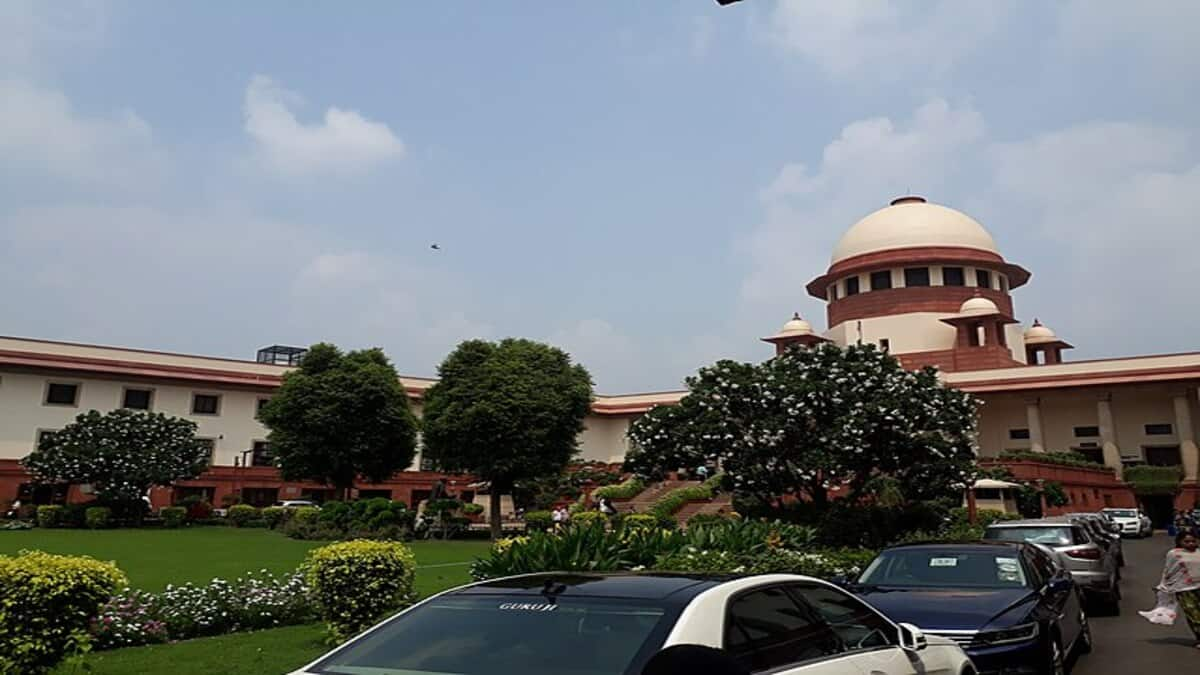West Bengal Jobs Scam: Petitioners move SC against scrapping of 25,000 jobs
Press Trust of India | January 15, 2025 | 07:57 PM IST | 4 mins read
The case stemmed from the alleged irregularities in the 2016 recruitment process conducted by the West Bengal School Service Commission (SSC).

NEW DELHI: Saying it adversely impacted the lives and livelihoods of untainted candidates, several petitioners moved the Supreme Court on Wednesday against a verdict nullifying the appointment of 25,753 teachers and non-teaching staff in government and aided schools in West Bengal.
A bench comprising Chief Justice Sanjiv Khanna and Justice Sanjay Kumar heard about 124 petitions challenging the verdict of the Calcutta High Court. The CJI acknowledged the arguments and reiterated the need for a balance between addressing illegalities and protecting untainted appointees and said the segregation of cases, wherever possible, may be prioritised to protect innocent candidates.
Referring to the high court’s verdict, the bench said, "It only said that when there were so many irregularities, it became impossible to know who were genuinely appointed and who were the ones who manipulated the process."
One common point argued was that the majority of untainted selected candidates, who were adversely impacted by the high court’s order, had crossed the permissible age limit to write any competitive examinations as the impugned recruitment process was of 2016. The case stemmed from the alleged irregularities in the 2016 recruitment process conducted by the West Bengal School Service Commission (SSC).
The controversy revolved around the alleged corruption in the state level selection test-2016. While 23 lakh candidates appeared for 24,640 posts, a total of 25,753 appointment letters were issued. The Calcutta High Court, citing irregularities such as OMR sheet tampering and rank-jumping, invalidated the appointments in April, 2024.
The top court had stayed the high court’s decision, allowing the CBI to continue its probe but prohibited coercive actions against the appointees. It had directed salaries and emoluments paid to those found to be illegally recruited would need to be refunded. A battery of senior lawyers including Dushyant Dave, Mukul Rohatgi, Kapil Sibal, Vikas Singh and Maneka Gurswamy argued on behalf of petitioners.
Initiating the arguments on behalf of the few petitioners, senior advocate Dushyant Dave said the high court’s order lacked a strong basis, particularly in directing a CBI investigation. He underlined the adverse impact on appointees' lives and livelihoods, and questioned the high court’s decision to expand a limited inquiry into a full-scale investigation. “To order a limited inquiry and to then take that into a full scale inquiry by the CBI and to say that everything is bad and to say all should go out… this is not correct,” he said.
Dave further argued, “We cannot be damned for this. We also have a right to life and livelihood." Senior advocate Mukul Rohatgi, appearing for two groups of appointees, stressed no allegations of wrongdoing were raised against those selected from the main panel. He said the high court prematurely passed its verdict without awaiting forensic reports from the Central Forensic Science Laboratory in Kolkata.
"Disproportionate nature" of high court
Advocate Prashant Bhushan, appearing for some of the candidates, said the CBI had already segregated cases of manipulation. He urged the court to protect such candidates against whom no wrongdoing was found. Senior advocate Kapil Sibal pointed to the "disproportionate nature" of the high court’s decision and argued the untainted candidates should not suffer due to irregularities committed by a minority.
Senior advocate Menaka Guruswamy, representing some untainted appointees, underscored the disproportionate harm caused by the high court’s mass cancellation. She cited previous apex court rulings on proportional responses in such cases. Senior advocate Vikas Singh questioned the reliability of evidence derived from hard disks, pointing out discrepancies in figures concerning tampered OMR sheets.
The bench, which concluded hearing the lawyers for petitioners, will resume the proceedings at around 2 pm on January 27. The top court on May 7 last year granted a major relief to teachers and non-teaching staff by staying the HC decision. The top court, however, permitted the CBI to continue with its probe and said it may even investigate members of the state cabinet if required.
While granting the relief on the pleas, the bench asked the CBI not to take any precipitative action like any arrest of any suspect during its investigation. It said the issue that required a closer analysis was whether the tainted appointments could be segregated. If it is possible then it would be wrong to set aside the entirety of the process, the bench said.
The top court termed the alleged recruitment scam in West Bengal as a "systemic fraud" and said the state authorities were duty-bound to maintain the digitised records pertaining to the appointment of 25,753 teachers and non-teaching staff.
The high court had instructed those appointed outside the officially available 24,640 vacancies, appointed after the expiry of the official recruitment date, and those who submitted blank OMR sheets but obtained appointments to return all remunerations and benefits received by them with 12 per cent per annum interest within four weeks.
Follow us for the latest education news on colleges and universities, admission, courses, exams, research, education policies, study abroad and more..
To get in touch, write to us at news@careers360.com.